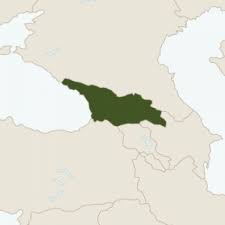A critical differentiator between traditional media and social media is how ‘targetcasting‘ is available only to a specific audience. Such secret targeting tears at the fabric of democracy, says Tom Wheeler, a Visiting Fellow in Governance Studies at Brookings’ Center for Technology Innovation.
“The editorial position of traditional media is openly obvious simply by reading or watching those outlets—something not available for social media,” he writes. “Such secrecy and closed control of information options inherently works at cross purposes to the democratic ‘We.’ It also promotes the propagation of questionable information.”

NDI
Exploitation of social media by anti-Western countries and extremists has fueled polarization and strengthened tribalism in both developed and developing states, notes Fron Nahzi, Senior Director of Global Development at Arizona State University. Many believe Russia and various extremists groups are winning the online fight between open and closed societies, he writes in a new analysis from the McCain Institute for International Leadership.
The report, Tracking and Refuting Disinformation in Georgia, provides a glimpse into Russian and domestic extremist groups’ campaign to incite extremism and turn Georgia against the West (above). The ambivalent response of the government institution to the ever-increasing influence and volume of disinformation resulted in alarming trends across the country, such as:
unprecedented polarization of Georgian society;
impunity for the aggression of extreme nationalist groups against pro-Western critical
media, civil society and opposition;
encouragement of hate speech and call for violence; and,
pro-Russian positions gradually pushed from the fringes to the mainstream.
There is a high probability of more active waves of propaganda from Russian sources as well as Georgian proxies in an effort to put pressure on Georgia’s pro-Western public opinion, the report adds. At this point, Georgia’s vibrant civil society is taking the lead on fighting Russia’s
influence operations. Growing pressure from the Kremlin suggests that a more comprehensive approach is urgently needed with more structured support from Georgia’s Western allies. RTWT
 The development and application of emerging technologies cannot be divorced from considerations of democracy and human rights, Marietje Schaake contends in an episode of the International Forum’s Power 3.0 podcast. In “Democracy and the Tech Revolution,” she offers ideas for identifying and establishing democratic governance norms in the context of the current technology revolution.
The development and application of emerging technologies cannot be divorced from considerations of democracy and human rights, Marietje Schaake contends in an episode of the International Forum’s Power 3.0 podcast. In “Democracy and the Tech Revolution,” she offers ideas for identifying and establishing democratic governance norms in the context of the current technology revolution.
Schaake is a former member of the European Parliament representing the Netherlands who has joined Stanford University as the first international policy director for the Cyber Policy Center, and as an international policy fellow for the Stanford Institute for Human-Centered Artificial Intelligence. Christopher Walker, the National Endowment for Democracy’s vice president for studies and analysis, and Shanthi Kalathil, senior director of NED’s International Forum for Democratic Studies, co-host the conversation. Similar content can be viewed on the Forum’s blog, Power 3.0: Understanding Modern Authoritarian Influence.
Despotic Data
State-led content manipulation drove the recent backlash against the NBA in China, says Sarah Cook, Senior Research Analyst for China, Hong Kong, and Taiwan at Freedom House in its Freedom At Issue Blog.
 Access to data is often a bottleneck when it comes to the production of new technology and innovation such as artificial intelligence (AI) and machine learning (ML), says Noam Yuchtman, recipient of the British Academy’s Global Professorship and Professor of Managerial Economics and Strategy at the London School of Economics. Authoritarian regimes benefit from having access to large amounts of data which in the democratic world depends on strict laws and cultural perceptions around privacy.
Access to data is often a bottleneck when it comes to the production of new technology and innovation such as artificial intelligence (AI) and machine learning (ML), says Noam Yuchtman, recipient of the British Academy’s Global Professorship and Professor of Managerial Economics and Strategy at the London School of Economics. Authoritarian regimes benefit from having access to large amounts of data which in the democratic world depends on strict laws and cultural perceptions around privacy.
The EU East StratCom Task Force has an exclusive interview with Russian journalist Maria Borzunova (above). Every week she exposes pro-Kremlin disinformation in her program ‘Fake News’ on the independent TV Rain. RTWT
 Authorities from Finland and Sweden will come together in Helsinki this month as part of an exercise to enhance both the cooperation and the coordination between the two Nordic countries when responding to attempts of influence through the use of information, Kremlin Watch reports. An estimated 40 public officials from Finland and Sweden will participate in the exercise at the Finnish capital and will be trained to identify, analyse and respond to threats of information influence.
Authorities from Finland and Sweden will come together in Helsinki this month as part of an exercise to enhance both the cooperation and the coordination between the two Nordic countries when responding to attempts of influence through the use of information, Kremlin Watch reports. An estimated 40 public officials from Finland and Sweden will participate in the exercise at the Finnish capital and will be trained to identify, analyse and respond to threats of information influence.
Given trends towards misinformation, weaponized communications, information overload, and polarization in our online information ecosystem, what are potential solutions for promoting truth and trust online? Amy X Zhang asks, previewing the inaugural conference on Truth and Trust Online (TTO 2019).
The next frontier in the fight for democracy may not be a physical place, but rather the technology that connects us all, @DCTwining adds. If you’re in DC, come to the next #Tech4Dem happy hour on 11/20, hosted with @NDI @IREXintl to talk chatbots, misinfo and more.







